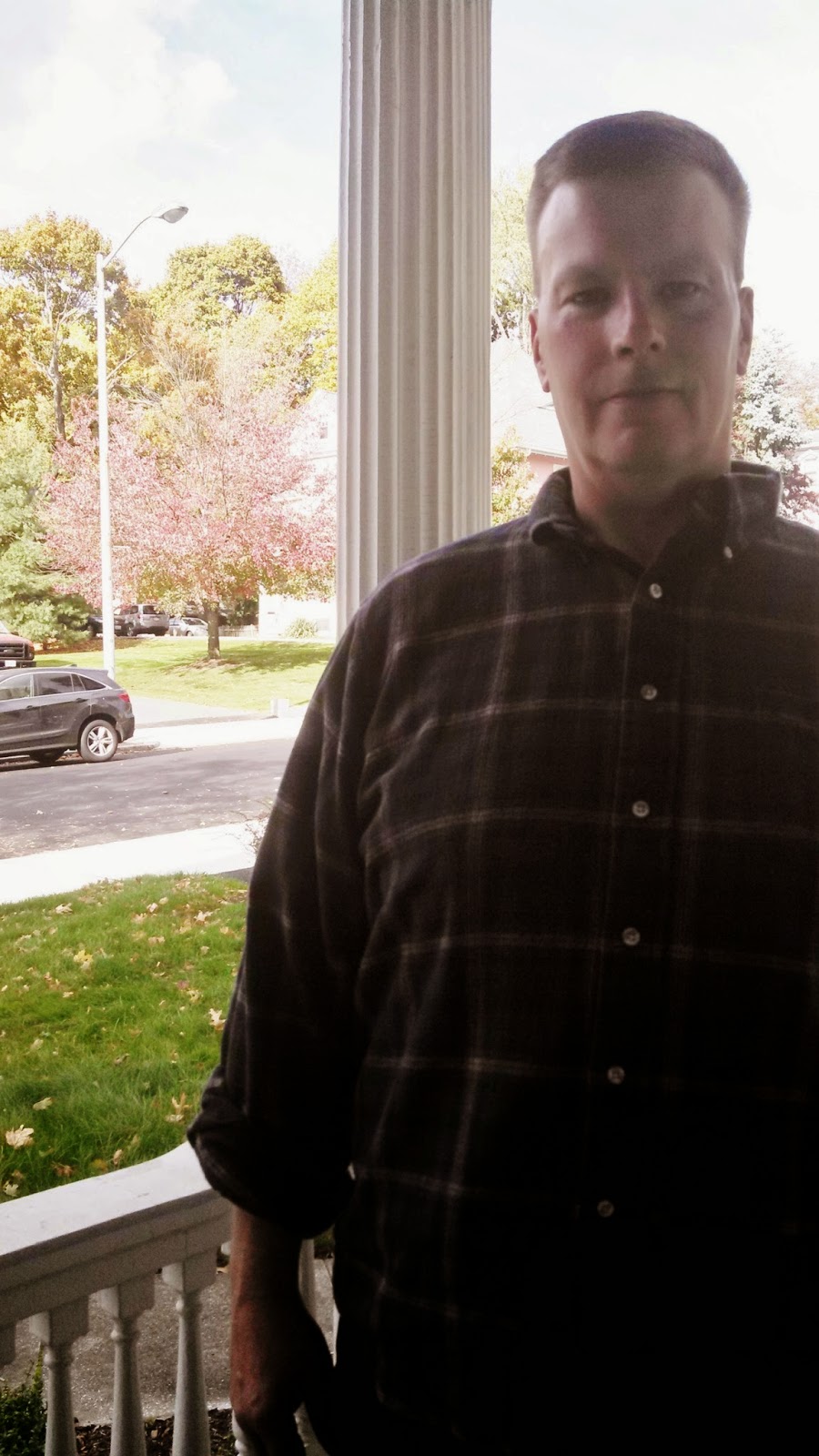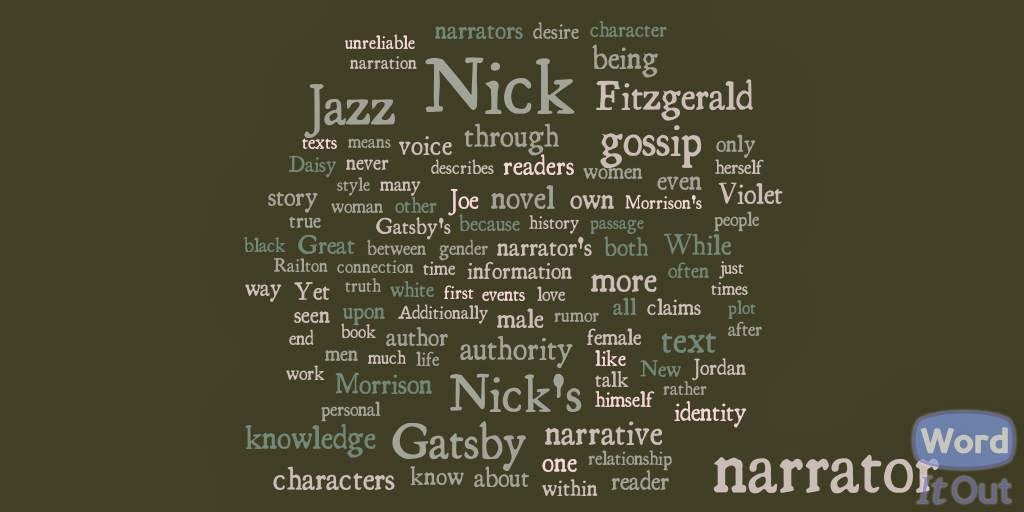Friday, March 28, 2014
Leroy Allston Ames Essay Contest!
The English Department would like to announce the Leroy Allston Ames Essay Contest for the best essay on literature and/or history of England from 1750 to 1900 (limit one entry per student). Submissions are due Monday, April 28, 2014 at noon in the English Department Main Office at Anderson House! We encourage all undergraduates, including matriculated COPACE students to apply! Best of luck to all!
Monday, March 24, 2014
Robert Karockai's conference experience
 Recently many of the
graduate students at Clark’s English Department have been attending
conferences to showcase their work. Robert Karockai, a graduate student at the English Department, has been kind enough to
give us an account of his experience attending the HERA conference in
Washington D.C. All of us at the English Department would like to offer a
hearty congratulations to Robert, as well as all of the other Graduate students
who were able to present at conferences.
Recently many of the
graduate students at Clark’s English Department have been attending
conferences to showcase their work. Robert Karockai, a graduate student at the English Department, has been kind enough to
give us an account of his experience attending the HERA conference in
Washington D.C. All of us at the English Department would like to offer a
hearty congratulations to Robert, as well as all of the other Graduate students
who were able to present at conferences.
Without further ado, here is what Robert had to say about
his experience:
Yours,
Robert Karockai M.A. candidate
Friday, March 21, 2014
Featuring...My Honors Thesis
Like Lauren Cyr, I also have been working on an Honors
Thesis this year. While I could give tips and tricks on navigating the process
of very-long paper writing, I think Lauren already put it best (follow this
link to see her post: http://clarkenglishblog.blogspot.com/2013_09_01_archive.html.)
Instead what I would really like to do is just to tell you about how I came to
my topic and what I have so far learned about it. Because for the first time in
a while, I have found a topic for which I cannot exhaust my enthusiasm.
I knew I wanted write an honors thesis basically since
declaring my major. To me, it had always been a part of my plan. However, when
it came time to start thinking of a topic, I was 100% burnt out. My junior year
beat me down and I found that during that summer I didn't want to think of
anything academic at all. Furthermore, I knew I was tired of all the topics I
had explored before. I never wanted to read Jane Eyre or Evelina again; no
longer was I interested in the gendered advertising techniques employed by Dr.
Pepper, Coca-Cola or any other company; I would not want to look at another
colophon in the confines of Clark's archives; I did not want to read another
autobiography. I wanted to take everything I had read and done and throw it
across my room in a fit of childish catharsis. But more practically and
reasonably, I knew I wanted to be excited about what I was going to do for a
whole year, and I thought in order to do that, I needed to find something new.
It wasn't until I went to see The Great Gatsby movie--which
I hated--that my thesis began to take shape. Nick, to me, is an iconic
narrator. Yet in that movie, I felt he barely even needed to exist. He was just
a vehicle for reporting the plot of the book and means through which the
morality of the text could be interpreted. Looking deeper into Nick and
narrative style, I began to realize that Nick's distance and possible
objectivity allowed him to become a moral authority within his text.
Furthermore, I saw this pattern in other narrators throughout the literary
cannon: Walton in Frankenstein, Dr.
Watson in Sherlock Holmes. As I accumulated more examples, I began to find one
major gap emerging. There were no female narrators of this type, no female
authors writing this type.
Skipping forward a bit, I, with the help of Professor Huang
found Jazz. Written by Toni Morrison
and voiced by a complicated, implicitly female character, the novel happens to
focus upon the same time period as The Great Gatsby, the Jazz Age in the United
States. However Jazz focuses upon the
Blacks of Harlem who barely enter the world of Gatsby's moneyed elite. Using
these two books as my texts, I began to explore the world of narrative voice
and narrative ethics, gossip and claims to knowledge, gender and canon-building.
I am not going to give you a huge summary of my paper. If you want a sense, look at the word cloud.
 |
| Word Cloud of my Thesis courtesy of Word it Out |
Friday, March 14, 2014
2014 International Conference on Narrative
From Thursday, March 27, to Saturday, March 29, Clark University's
Department of English, the Higgins School of Humanities, and the Dean of the
College will be co-hosting the 2014 International Conference on Narrative at the Massachusetts Institute of Technology. The conference will
feature professors and students from all over the world presenting papers on questions
of narrative in various media through many different theoretical lenses.
Three Clark professors will be chairs of panels at
the conference: Professors Esther Jones, Lisa Kasmer, and Betsy Huang.
Professor Jones will head a panel on the issue of “Narrative Ethics & the
Intersectional Body,” featuring presentations of papers by Clark MA students Bella Che, Stephanie
Grace, Nadia Gul, Natalie Kruse, and Ayesha Sindhu. Professor Kasmer will lead
the panel “Gothic Narratives & Cultural Subversions,” in which she will
present her own paper, “Traumatic Subjects: Mary Shelley’s Frankenstein and
Cultural Memory.” And finally, Professor Huang will be heading two panels: “Partial
Minds & Cognitive Estrangement” and “International Epistolary Forms &
Networks,” the latter of which will feature a presentation from Clark PhD research assistant Melike Sayoglu.
If you have a chance, take a ride to MIT and support your Clark
colleagues, teachers, and friends!
White Privilege Meets Interracial Adoption: Comments and Conversation
As part of the Higgins Faculty Series for this semester’s
dialogue symposium sponsored by the Higgins School of Humanities, our department’s
own Professor Fern Johnson will be giving a talk with her partner, Professor
Marlene Fine of Simmons College, on the topic of interracial adoption. The
talk will be held on Thursday, April 3rd
at 4pm in the Higgins Lounge at Dana Commons.
Fern Johnson and Marlene Fine will talk about their
perspectives on white privilege as the white parents of two adopted African
American children. They are the authors of The
Interracial Adoption Option: Creating a Family Across Race (Jessica
Kingsley Publishers, 2013). The book
provides a beginning point for the white person who is contemplating or already
has adopted a child of another race, but it is also a commentary on how blinded
white persons- even those who have studied race- can be to the everyday
realities of race. The topic of
interracial adoption remains charged, but it is taking on new meanings as our
society becomes more multi-racial.
To see an article coauthored by Professors Johnson and Fine,
see When White Parents Have 'The Talk' With Black Sons.
To listen to the authors discuss their new book, check out a
talk they gave with Radio Boston, The
Interracial Adoption Option.
Subscribe to:
Posts (Atom)

